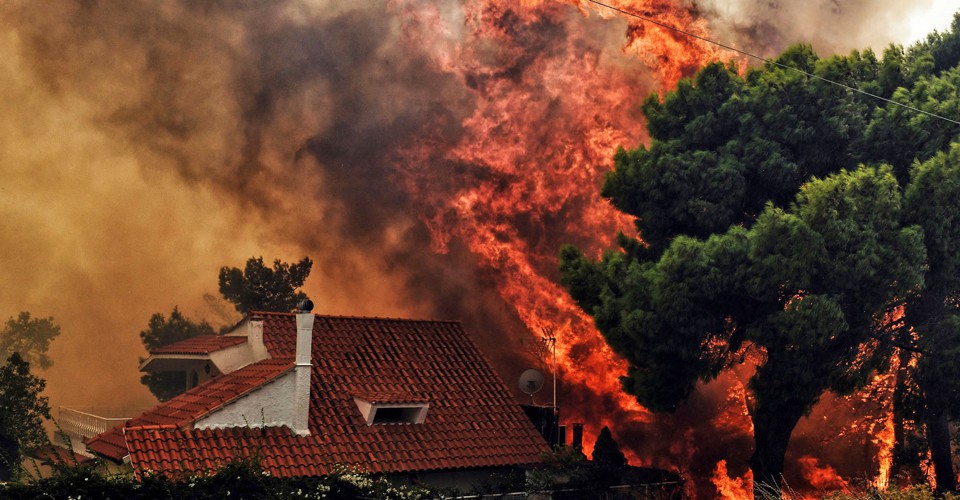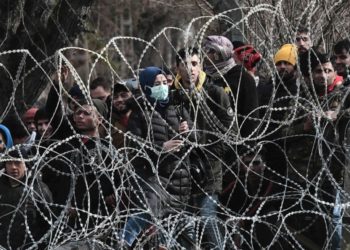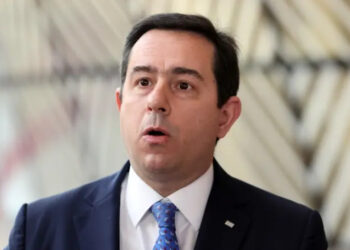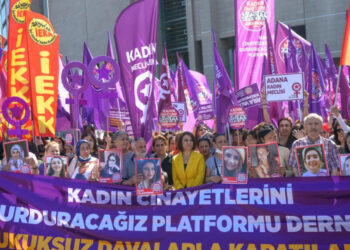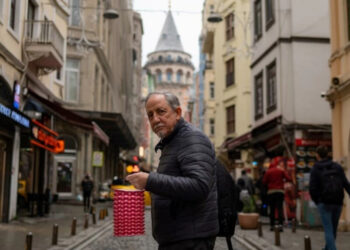Last year, the European Union, after months of diplomatic wrangling, sealed a deal with Turkey to curb the flow of migrants to Europe, an issue that exposed deep cultural rifts in Europe and fueled the rise of anti-immigrant populism among right-wing politicians.
Today, the hard-won deal expires after remaining one year in effect. While it reduced migration 90 percent, hundreds of thousands of refugees stranded in camps scattered in Greece and Balkans, facing tremendous hardships, including psychological trauma and health problems.
There is a mixed feeling about the success and shortcomings of the deal. In Europe’s divided political landscape, the deal saved political skin of many figures and offered a temporary solution to an urgent problem. But a recent report reveals that it produced a deadlock over the state of refugees in camps, without providing any framework to improve their conditions.
There is another, and more important, matter with regards to the migration deal. The escalating row between Turkey and Europe after Turkey’s mutual recriminations with Germany and the Netherlands over Nazi remarks cast doubt whether the extension of the deal would be possible.
Initials signs are not promising. Turkey’s EU Affairs Minister and Chief Negotiator Omer Celik threatened to tear apart the deal. Deputy Prime Minister Numan Kurtulmus adopted a similar threatening tone and said Turkey would back down from the deal if the EU fails to deliver its aid promised in the deal.
Turkey’s Foreign Minister Mevlut Cavusoglu was blunter in his remarks on Wednesday, signaling that Turkey would move to freeze the deal. A few days earlier, he highlighted the lack of progress on visa-free travel regime for the Turkish citizens.
Mr. Cavusoglu warned of the abolishment of the agreement if the EU fails to grant a visa exemption to the Turks.
“We see that the European Union has been stalling us. But out patience is not unlimited. Our citizens also have expectations. If visa liberation does not come, we will take steps regarding the migration deal,” Mr. Cavusoglu said.
The latest diplomatic dispute only aggravates the situation, and hardened populists on both sides may demand tougher line over migration. Whether the deal would collapse or survive political balancing act remains an open question given that both Europe and Turkey braced for critical polls that will define their political future.
And Turkey’s threats are not without precedent or reciprocatory. President Recep Tayyip Erdogan repeatedly broaches the issue of ending the deal, revealing the ever-present pitfalls entrenched in any accord between two sides.
The EU said last week that it placed some of the funding aid to Turkey on hold.
“Turkey is moving not in the direction of Europe, but in the opposite direction. We are legally obliged to correlate financial support with the progress the country is making,” European Neighborhood Policy EU Commissioner Johannes Hahn said after announcing the decision to free some of the financial aid.
It is especially jarring for hundreds of thousands of refugees, given that they are trapped in a permanent state of limbo in camps, and yet their future are dependent on geopolitical contest and calculations, mutual threats between Turkey and the EU.
A report by Médecins Sans Frontières (MSF) sheds light on one year of the deal and its impact on migrants across refugee camps. The findings are gut-wrenching and sometimes worrisome. A year after a landmark deal, little has changed for thousands. What awaits them appears no different from what they endured during the past year.
The MSF report exposes human costs of European policy failures in Greece and the Balkans.
“The deal is having a direct impact on the health of our patients, and many are becoming more vulnerable,” Jayne Grimes, MSF psychologist in Samos, said. “These people have fled extreme violence, torture, and war and survived extremely dangerous journeys. Today, their anxiety and depression are aggravated by the lack of information on their legal status and their poor living conditions.”
“They are losing any hope that they will find a safer, better future than the one they fled. I often see people who contemplate suicide or self-mutilate,” he concluded.
That seems a particular policy choice by the Greek and European authorities to deter new migrants. And President Erdogan‘s threat to unleash all the refugees in Turkey toward Europe sounds terrifying, but not realistic as once it was.
Whatever Mr. Erdogan does, the prospect of traveling to Greece is less appealing to Syrian refugees than it once was, Heaven Crawley, a migration expert at Coventry University told the New York Times.
“There is no shortage of people in Turkey who could move. It’s just that they don’t see there’s much point in moving,” Professor Crawley, who is also a co-author of wide-ranging research on the motivations of Europe-bound migrants, said.
“They don’t see the point of being stuck in Greece,” he added.
The MSF report’s findings tell indeed why refugees in Turkey appear less eager to move. The conditions of refugees in the Greek islands are unendurable and gloomy.
MSF psychologists in Lesbos saw the percentage of patients with anxiety and depression increase by 2 and 1/2, and the percentage of those with the post-traumatic stress disorder increase threefold.
MSF doctors and psychologists note a dramatic increase in suicide attempts and self-harm among migrants.
“European leaders continue to believe that by building fences and punishing those who still try to cross them, they will deter others from fleeing for their lives,” Aurelie Ponthieu, MSF humanitarian advisor on displacement, said in the report.
“Every day we treat the wounds, both physical and psychological, inflicted by these deterrence policies. Such measures have proven to be not only inhumane and unacceptable but also completely ineffective,” Ponthieu concluded.
********
This article was possible thanks to your donations. Please keep supporting us here.



